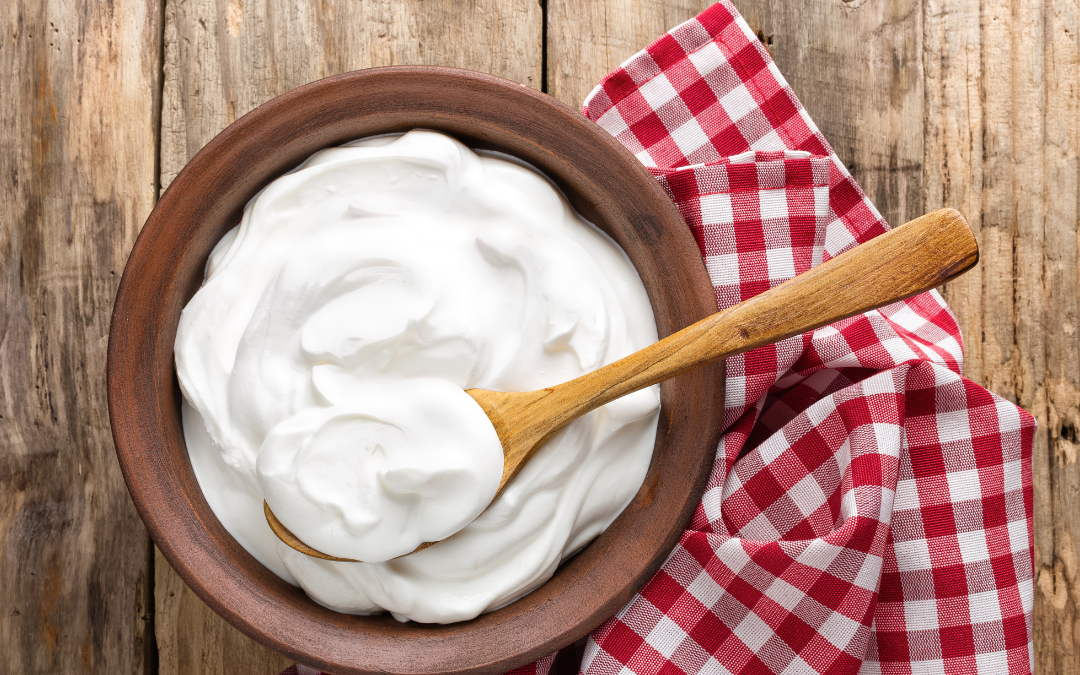Many dairy brands use artificial sweeteners such as sucralose and preservatives like potassium sorbate in making various types of yogurt, including Greek yogurt.
According to the World Food and Drug Administration, sucralose is a widely used sweetener that has secured a stable place in cooking. This chemical compound is 600 times sweeter than sugar. Moreover, the FDA recognizes potassium sorbate as a safe and harmless chemical preservative.
Alicia Ramsey, a nutrition and diet expert and spokesperson for the Academy of Nutrition and Dietetics, stated that only a few individuals may experience negative effects from consuming sucralose. However, sucralose gives food a sweet taste, which is highly enjoyable for people.
Potassium sorbate is a preservative that prevents the growth of yeast and sourdough in foods such as cheese, alcoholic beverages, dried meats, processed juices, and other baked goods.
Potassium sorbate is not harmful to our health, but it’s important to note that it is used in foods that should make up only a small portion of our diet.
The claim that potassium sorbate is used in insecticides has caused fear among people regarding dairy products. However, there are other substances used in both insecticides and food, such as cinnamon, cloves, garlic, and peppermint, which people need not worry about consuming.

Sucralose:
Sucralose is the only calorie-free sweetener derived from sugar and is 600 times sweeter than sugar. The substitution of 3 chlorine molecules makes sucralose unbreakable and non-metabolizable, so it passes through the body unchanged and is considered an inert and safe substance.
Sucralose was discovered by Tate & Lyle in 1976 and approved by the U.S. Food and Drug Administration (FDA) in 1998. It is now used in over 80 countries, including the U.S., Canada, and Australia, in solid foods and beverages.
This substance dissolves easily in water and, due to its stability, is ideal for cooking.
Sucralose generally has very mild side effects, which become apparent after a long period of consumption. Moderate amounts of sucralose may not be harmful to humans. Most of the sucralose consumed is excreted without being metabolized, but long-term regular use can lead to its accumulation in the body, resulting in harmful effects. The main health issues caused by sucralose consumption are listed below:
Gastrointestinal system (GI): Various studies are being conducted to examine the effects of sucralose accumulation in the GI tract. Sucralose buildup can affect the metabolism and composition of gut microbiota. The gut flora performs various functions, including fermentation, modulation, vitamin synthesis, pathogen inhibition, drug metabolism, and the absorption of magnesium and calcium.
Reduced drug efficacy: Sucralose consumption may decrease the absorption of some therapeutic drugs, reducing their effectiveness. These include cancer and heart disease medications.
Digestion: Several studies have shown that chemically-extracted sweeteners can disrupt digestion by causing bloating, diarrhea, and gas. Good bacteria in the gut ensure smooth digestion, but these can be replaced by harmful bacteria due to sucralose accumulation in the GI tract. This situation may increase water and nitrogen gas levels in the large intestine, which can, in turn, lead to diarrhea. Research has shown that most indigestion symptoms are caused by artificial sweeteners.
Various foods and beverages, including those made with sucralose, can be part of our diets. Sucralose has been approved by the FDA for over two decades, and many international health agencies have accepted its safety.
Potassium Sorbate:
Potassium sorbate, which occurs naturally in some berries, is a substance with the chemical formula C6H7KO2. It is anti-mold and highly soluble in water. Potassium sorbate is used in the food industry for products such as dairy, meat, and baked goods like cakes and cookies, as a preservative to extend shelf life.
In permissible amounts (500 to 2000 ppm), it is not toxic and is most effective at a pH below 6. The effective antimicrobial concentration of sorbate in foods is 0.05-0.3%.
One of the good properties of potassium sorbate is its high solubility in water. This, along with its strong preservative properties, makes it widely used in food production.
This preservative enters the bloodstream through the mouth and mucous membranes and can react with blood proteins, potentially worsening diabetes or related symptoms. Therefore, individuals with diabetes should consult a doctor before using products containing this preservative. While potassium sorbate alone poses no harm and contains no harmful substances, recent research has shown that it can negatively affect human DNA structure. It can combine with lead, arsenic, and mercury to form a toxic and dangerous compound, causing acne and skin sensitivities in some people. Raw potassium sorbate powder can irritate the eyes and skin, so gloves and masks should be worn when handling it.

